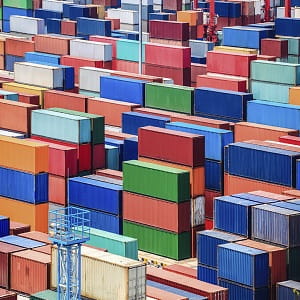Export Controls and Trade Compliance
Export control and trade compliance can be a confusing and complex task for companies to understand. Lawyers at Haynes Boone know that the smallest error can mean delayed shipments, seizure of products or even sanctions. The U.S. Government regulates the export of goods, software, technology, and military items from the United States for three reasons: (1) military - to restrict the flow of items that could make a significant contribution to the military potential of countries that threaten U.S. national security; (2) foreign policy - to advance U.S. foreign policy goals; or (3) short supply - to preserve scarce materials. While many different U.S. agencies regulate exports, primary authority rests with the U.S. Department of Commerce Bureau of Industry and Security (BIS), the U.S. Treasury Department Office of Foreign Assets Control (OFAC), and the U.S. Department of State Directorate of Defense Trade Controls (DDTC). Our firm helps companies comply with these regulations by establishing export control compliance programs, obtaining export licenses, and providing guidance on coping with international boycotts. We regularly represent computer, telecommunications, defense industry, chemical, energy and oil field services, biological and technology clients.
Export Controls
Our firm provides in depth guidance on the impact of the U.S. International Traffic in Arms Regulations (ITAR) and the U.S. Export Administration Regulations (EAR) on the corporate structure, business opportunities and specific transactions of U.S. and foreign telecommunications service providers, technology manufacturers, encryption software developers, defense contractors, energy companies, oilfield service providers, and financial institutions before the DDTC, BIS, the National Security Agency, and the White House to obtain appropriate licenses, exemptions or approvals for exports of U.S. goods, services or technology from the United States or from third countries, to approve military co-production arrangements or other technology transfer agreements, and to authorize plant visits and release of U.S. technology to foreign nationals located in the United States (so-called "deemed exports").
We regularly counsel, ensure proper classification and licensing, and obtain appropriate Export Administrative Regulations and International Traffic in Arms Regulations approvals from DDTC, BIS and the National Security Agency for leading oil field services companies (seismic collection, analysis and storage, drilling, firefighting and well control engineering and advisory services), energy companies (exploration and production), defense contractors (aerospace, military electronics, satellites), technology manufacturers (semiconductors, telecommunications, and nanotechnology) and software developers (security software and encryption).
We have successfully guided numerous U.S. computer hardware and software manufacturers and distributors through the process of obtaining the appropriate export control classification for their encryption capable software. In addition, we have provided hands-on assistance registering companies at BIS and providing step-by-step guidance for the self-classification of encryption products and, when necessary, preparing and submitting classification review requests with BIS.
Economic Sanctions and Embargoes
Our lawyers provide guidance to U.S. persons and entities, and their foreign subsidiaries, concerning restrictions imposed on trade and investment by U.S. economic sanctions (e.g., Cuba, Iran, North Korea, and Syria), and represent clients before Office of Foreign Assets Control on licensing, internal investigations, voluntary disclosures and enforcement actions. We regularly counsel U.S. and multinational companies on all aspects of their operations, acquisitions, and sales that may affect countries subject to U.S. or multilateral sanctions regimes.
Corporate Compliance Programs
We have developed and implemented corporate compliance and training programs that address export controls, economic sanctions, antiboycott regulations, money laundering, and Foreign Corrupt Practices Act (FCPA) issues affecting international trade and investment. We counsel U.S. and foreign companies on incorporating "best practices" into their corporate compliance programs. We have developed full-scale training programs for many of these clients.
Internal Investigations and Voluntary Disclosures
Our team perform audits of international transactions and export activities, documentation, and processes and where possible violations have been uncovered, perform a full internal investigation and then, where appropriate, submit a voluntary disclosure to the appropriate government agency. We have spearheaded internal investigations of possible violations of U.S. export control laws and anti-corruption laws for numerous U.S. and foreign companies. We work closely with in-house counsel to determine the appropriate strategy and provide guidance on remedial measures. We also interview officers, directors, and employees and review corporate documents in the preparation of Voluntary Self Disclosures to the Directorate of Defense Trade Controls, the Department of Commerce Bureau of Industry and Security, the U.S. Department of Justice (DOJ), U.S. Customs and Border Protection (CBP), Office of Foreign Assets Control (OFAC), Office of Antiboycott Compliance (OAC), or other relevant enforcement authority.
Enforcement Actions
We represent U.S. and foreign companies and individuals in U.S. government investigations by BIS, DDTC, OAC, OFAC, Customs, and the Justice Department involving potential criminal and civil violations of U.S. export controls, sanctions, embargoes, antiboycott law, FCPA, intellectual property counterfeiting, and money laundering.
Antiboycott Regulations
We provide in depth planning, guidance, licensing, reporting, and enforcement representation with regard to the U.S. Department of Commerce Office of Antiboycott Compliance and Treasury regulations prohibiting participation or support of the Arab boycott of Israel. We counsel U.S. companies with branches, subsidiaries, joint venture partners or transactions in the Middle East. We also have undertaken internal investigations and made voluntary disclosures to the OAC.

Control by a Designated Person under UK Sanctions Legislation: Litasco SA v Der Mond Oil & Gas
December 05, 2023






